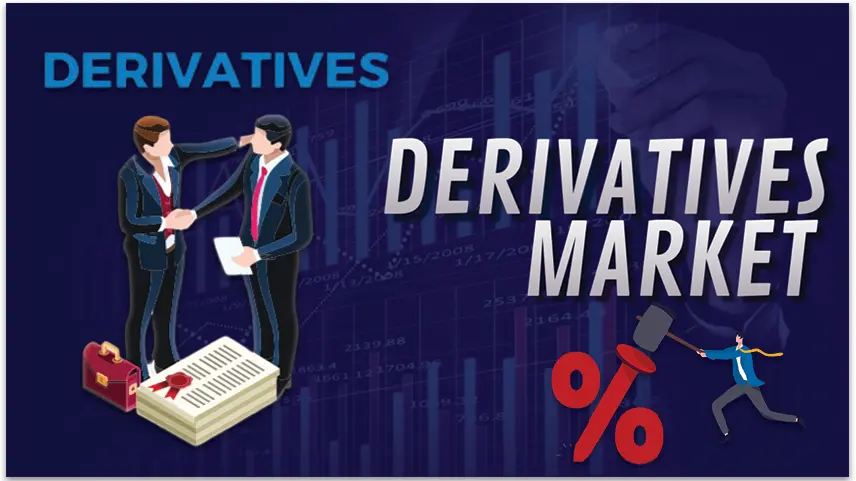Derivatives Market
The derivatives market is a financial market where financial instruments called "derivatives" are traded. Derivatives are the financial contracts that derive their value from the underlying asset, such as a commodity, stock, or currency.
The most common types of derivatives are futures contracts, options contracts, and swaps. Futures contracts are agreements to buy or sell an asset at a specific price and time in the future. Options contracts give the buyer the right, but not the obligation, to buy or sell an asset at a specific price and time in the future. Swaps are agreements to exchange cash flows based on the value of an underlying asset.
The derivatives market is used by investors to manage risk and make speculative investments. For example, a farmer might use a futures contract to lock in a price for their crop before it is harvested, to protect against price fluctuations. A company might use a swap to hedge against fluctuations in interest rates. Speculators might trade derivatives to try to profit from changes in the value of the underlying asset.
The derivatives market is a large and complex market, with a wide range of participants, including institutional investors, hedge funds, and individual traders. It is also closely regulated, to ensure that trades are fair and transparent, and to prevent market manipulation.

Different types of Derivatives
There are several types of derivatives, each with unique characteristics and uses. The most common types of derivatives are:
1. Futures Contracts: Futures contracts are agreements to buy or sell an asset at a specific price and time in the future. They are traded on exchanges and are used by investors to hedge against price fluctuations and to make speculative bets on the direction of the market.
2. Options Contracts: Options contracts give the buyer the right, but not the obligation, to buy or sell an asset at a specific price and time in the future. They are used by investors to hedge against price fluctuations and to make speculative bets on the direction of the market.
3. Swaps: Swaps are agreements to exchange cash flows based on the value of an underlying asset. They are used by investors to hedge against interest rate, currency, or credit risks.
4. Forwards Contracts: Forwards contracts are similar to futures contracts, but they are not traded on exchanges. Instead, they are customized agreements between two parties to buy or sell an asset at a specific price and time in the future.
5. Credit Default Swaps (CDS): CDS contracts are used to transfer credit risk from one party to another. They are used to hedge against the risk of default by a borrower, such as a corporation or a government.
6. Equity Derivatives: Equity derivatives are financial instruments whose value is based on the performance of an underlying stock or a stock index. They include options, futures, and swaps on stocks and stock indices.
7. Commodity Derivatives: Commodity derivatives are financial instruments whose value is based on the performance of an underlying commodity, such as oil, gold, or wheat. They include futures, options, and swaps on commodities.
Each type of derivative has its own advantages and risks, and investors should carefully consider their investment objectives and risk tolerance before investing in derivatives.
Also Read - Best Stock Brokers for Intraday Trading, How to earn money from the Share Market

0 comments